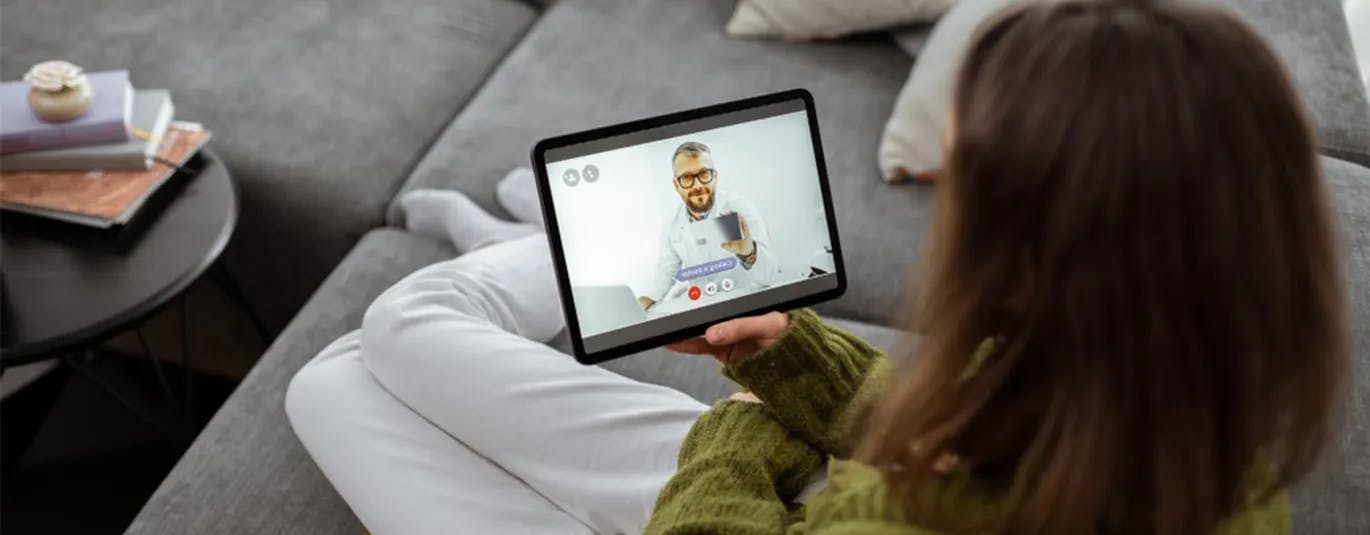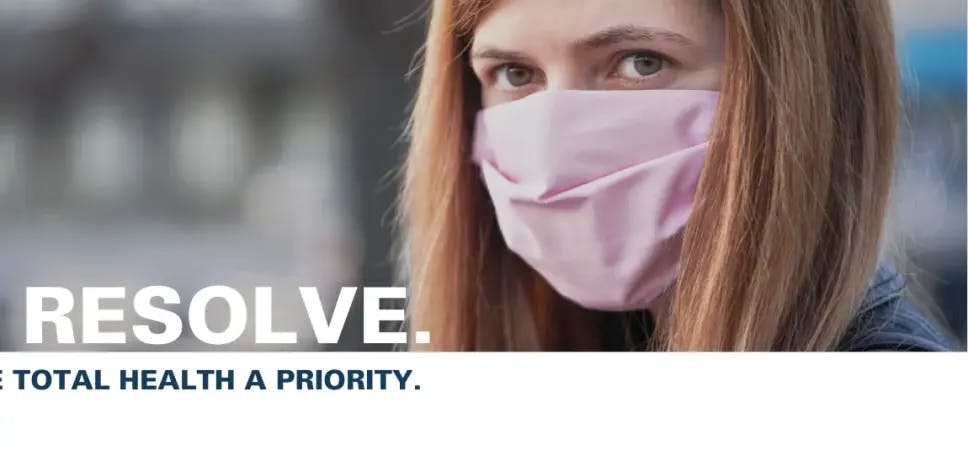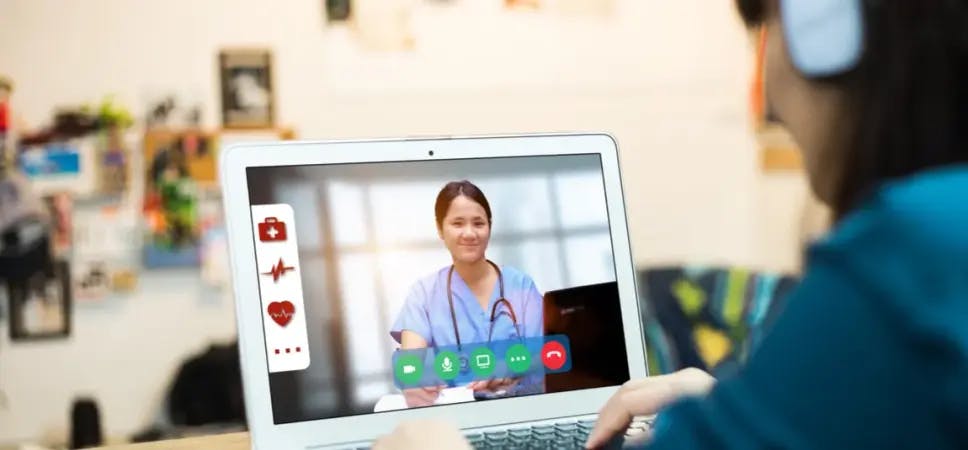
HAVE A CHRONIC DISEASE? HERE’S HOW YOU CAN CONTINUE TO MANAGE YOUR ILLNESS AND TAKE CARE OF YOURSELF.
Nurse case managers at Blue Cross and Blue Shield of North Carolina (Blue Cross NC) are working hard to help members with existing health conditions stay safe. Four of these nurses—Roanne Ray, Ebb Olwell, Cary Holt, and Grace Denton—compiled a few tips for protecting yourself and staying healthy.
MAKE A PLAN FOR GETTING GROCERIES AND ESSENTIAL ITEMS
Because people with chronic illnesses are at higher risk for complications from COVID-19, they should avoid stores except when necessary according to the CDC.
Consider getting groceries delivered, if you can, or asking a friend for help.
If you have to go to the store, try to go early in the morning or late in the evening, when stores are less crowded. Stock up on several weeks of food at a time.
Wash your hands with soap and water before and after putting groceries away.
To avoid extra trips to the pharmacy, ask your doctor to order a 90-day prescription of your maintenance medications. Blue Cross NC has waived early medication refills, so members can have the medicines they need on hand.*
TAKE ADVANTAGE OF TELEMEDICINE
Telemedicine is one of the best ways to protect yourself against exposure. Instead of walking into a clinic, call your doctor’s office and ask about virtual care.
As we all navigate the pandemic, Blue Cross NC has expanded the types of virtual access available to primary care doctors, specialists, behavioral health providers and other licensed providers in North Carolina. We’ll cover virtual visits the same as in-person visits according to your health plan. Telemedicine visits vary based on your plan. To learn more about telehealth, see our COVID-19 telehealth update.*
Just like with a face-to-face visit, you can follow up online with any questions for your doctor.
If you need to see a doctor in-person for testing, ask your physician if you can safely push the appointment to a later date.
PRACTICE GOOD HYGIENE
Wear gloves when you are pushing a grocery cart, pumping gas, or touching surfaces outside your home.
Wash your hands frequently throughout the day. You should wash your hands for at least 20 seconds with soap and water, especially before eating.
Be diligent about not touching your face.
Protect yourself with a face mask or any facial covering when you are in a public area. Dispose of the mask or put it in the washing machine when you return home.
IF YOU SMOKE, THERE HAS NEVER BEEN A BETTER TIME TO QUIT THAN NOW
The CDC is reporting that smoking and vaping make you more susceptible coronavirus and to more serious symptoms of the disease.
The good news is that QuitlineNC has your back! They offer free, 24/7 support to quit, including free nicotine patches and gum or lozenges, for most Blue Cross NC members. If you’re not sure if your plan covers QuitlineNC, call the number on the back of your insurance card.
Call 1-844-8NCQuit (1-844-862-7848) any time, or register online at www.quitlinenc.com. Get telephone, online and/or text help to quit. Your lungs start healing very quickly after you quit smoking.
TAKE CARE OF YOUR OVERALL MENTAL AND PHYSICAL HEALTH
In addition to taking all your medications and staying in contact with your doctor, remember to take care of your overall well-being.
You can do that by:
Staying hydrated
Getting a good night’s sleep
Eating a healthy diet
Getting outside for a walk while staying at least six feet away from others
Staying connected to your support system and building resilience
Calling a friend or family member every day
Seeking out mental health support as needed
Ongoing care is more important than ever. For members with access to Health Line Blue, nurses are here to answer your calls free of charge 24 hours a day, seven days a week. Health Line Blue nurses can answer medical questions on almost any health issue. They’ll help you decide the best place to get care based on your symptoms.
Ready to get started?
Related Articles

3 Tips For Coping With Chronic Illness
Several years later, I still haven’t gotten used to living with a chronic illness. I’ve never had a moment of radical acceptance. I’ve never woken up and said, “Ah, yes, I get it now! This is all part of a grand plan! It all makes sense!”
What I have done is learned to live a meaningful life within my limitations. It didn’t happen overnight, but it did happen.
Emilie Poplett via Blue Cross NC

How To Manage OCD & Anxiety During The COVID-19 Outbreak
We talked with Dr. Patrick McGrath, Head of Clinical Services at NOCD to learn more about this behavioral health condition during COVID-19.
Q: What impact has COVID-19 had on people with anxiety and OCD?
Chelsea Moravek and Susan Foosness

6 Surprising Ways Hiking Can Improve Your Mental Health
Reduce the risk of heart disease
Reduce your risk of hypertension, or high blood pressure. (Hiking regularly has been shown to lower blood pressure by 4 to 10 points.)
From Blue Cross NC By Joe Miller

What Is Telehealth? Doctors Answer Your Questions About Virtual Care
WHAT IS TELEHEALTH?
Dr. Warcup: Telehealth is using a virtual platform to provide care. That can be telephone or video.
Blue Cross NC